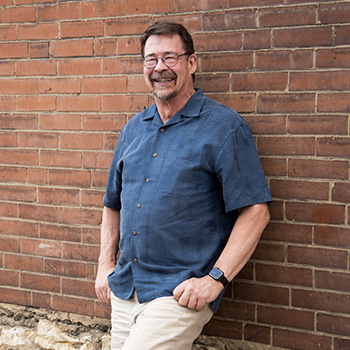Helpers need help, too.
I work with people who work with people. One client described it as “helping helpers.”
It started in graduate school and immediately afterward when I supervised ministerial students doing internships in churches and social service agencies.
“Do something, think about it, and do it again differently” was the simple model used to foster incremental changes in both students and the settings.
 Discover a new path.
Discover a new path.
Today, while my work has evolved, I still do critical assessments. Together, through conversations and questionnaires, we will develop an honest understanding of what is working or not. Showing up can be hard, and I will guide us on a journey of discovery where those things that are heartfelt and meaningful are given the attention and energy they deserve.
Generative conversations will help you understand and reshape the stories that construct and color the ways you live. Together, we will learn to speak truthfully, without blame or judgment, so you discover what future path is preferred. You also will learn to be open to new ways of being and doing without having the world collapse if something surprises you.
In addition to pleasant conversations and questionnaires, I have a list of simple exercises and practices that help enormously as we retrain our adult brains to handle complexity and to seek better solutions for each of us while journeying on a new path.
Meeting together is at your convenience.
Due to the demands of time and travel, I have learned to value wide bandwidth and sharp monitors for bringing people together.
This sometimes allows a parent the opportunity to consult even when childcare isn’t available or the hour is later. Perhaps it allows you to fit in a session without leaving your office.
I know we can make this work. The focus is on providing an opportunity for you to find solutions.
 No satisfaction at work for Alan.
No satisfaction at work for Alan.
Something happens to you when the career you’d planned no longer satisfies. Take Alan, for instance.
He woke up one Monday morning and realized he’d rather do anything besides going back to his clinic.
Alan knew exactly how the day would unfold. First, there’d be the obligatory smiles and questions about his weekend. He’d pretend and offer some little quip. He’d smile. Second, he’d see who was scheduled. It wouldn’t make any difference who he saw because he’d lost all enthusiasm for anything but the most challenging patients.
It wasn’t that he wanted to work harder, but he no longer found his clients that interesting. Really, he was bored with himself, and nothing in his work could overcome this inner stagnation.
That was the actual issue: He was bored with himself, his routines, and especially who’d he’d become. All his early aspirations were met or proven to be hollow.
Would the rest of his career be more of the same?
Struggles with faith make Jenny’s pastoral care challenging.
Jenny was in a different setting. She was pastoring her second congregation of charming people.
Jenny had a problem, however. She no longer had faith in everything she said or taught. Her words seemed inadequate or even misguided. At the very least, she recognized how many cliches she depended upon.
She worried about that slippery slope of her own faith and understandings.
How can she be honest about her doubts, her genuine doubts, without jeopardizing her career and disappointing her parishioners?
Hello, I’m Dr. Edgar Tanner
 The clients who work with me aren’t crazy. They aren’t underachievers. They aren’t insensitive to others. They can be driven to excel, help others, and pursue fantastic dreams until they can’t. Then, they reach out for direction and support.
The clients who work with me aren’t crazy. They aren’t underachievers. They aren’t insensitive to others. They can be driven to excel, help others, and pursue fantastic dreams until they can’t. Then, they reach out for direction and support.
People who seek me out are generally at the forefront of their careers but realize they have many unanswered questions. Something is nudging them to change, but they hardly know which way to go. To speak of beautiful vistas doesn’t connect because swamps are all they can see.
My clients, especially those who end up calling me Edgar or Doc, have found their answers. They’ve discovered an essential peace within themselves and their world. They recognized anxieties that they didn’t realize they had, but now, they are given appropriate attention.
Learn to focus on the real and the ideal.
Both personally and professionally, I’m curious about the big picture. With graduate degrees in counseling psychology and Christian ministry, I seek to unite the real and the ideal.
When long motorcycle or complicated mountaineering trips are on my horizon, I get real about my abilities and limitations, what preparation I might need to do, and where I’d like to end up. The experience itself is always more and different from my preparation. I’ve learned to relax into change and enjoy life’s surprises.
 Useful paths are available to those who search.
Useful paths are available to those who search.
I’ve tried to discover useful paths rather than breaking myself over immovable obstacles.
I believe our world is essentially good, is still developing, yet it doesn’t always feel that way. I’ve learned to trust good conversations and good listening. It opens up new and better options in my own decision making and builds bridges across differences.
Let’s have a good conversation. Together, we can find that path that leads to satisfaction while removing obstacles that cause boredom and doubt.
Let’s do something great together!

